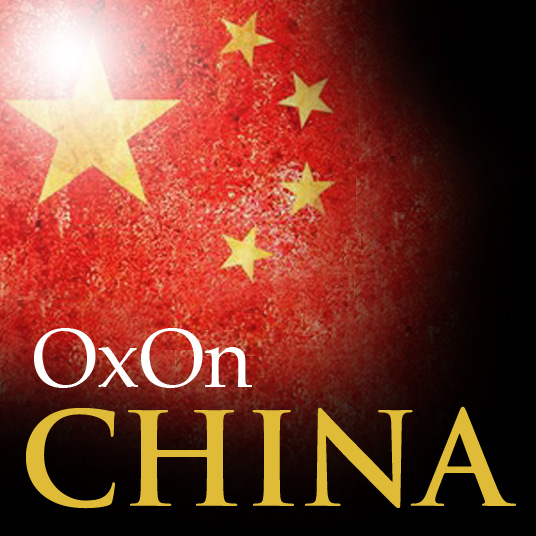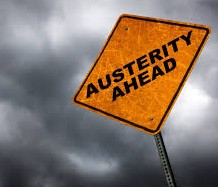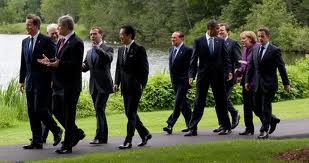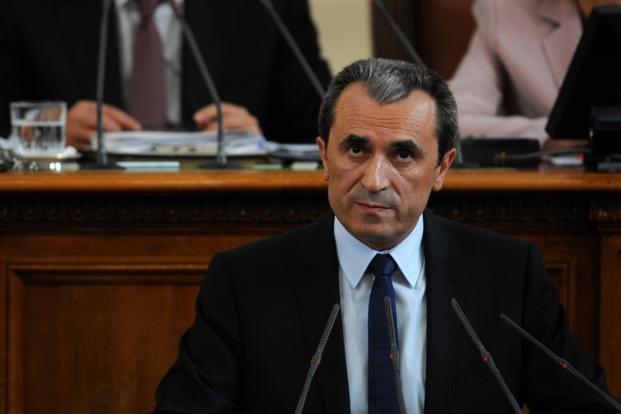
The new political regime in China: is it business as usual?
Dramatic changes do not appear to be on the agenda in China, at least at the surface level. The new political regime, under the stewardship of Xi Jinping, inherited an economy with widening socio-economic disparities and accompanying social welfare concerns. Farmers, migrant workers and lower/middle-class urbanities grumble about rising living costs, and a perceived lower quality of life. Their concerns are further cemented by greater public awareness of corruption in both the state and non-state sectors. This may be the cause of lower levels of trust and confidence in public and private institutions by the general public.
But in spite of the discontent, changes are happening. Administrative in nature, perhaps, these changes will have strong implications for state-society relations going forward.
What can we expect?

When the Party’s Over: The Politics of Fiscal Squeeze in Perspective
Fiscal austerity, fiscal consolidation and spending cutbacks currently dominate the politics of many of the world’s democracies. Old political arguments are being tested with new battles emerging over whose expectations are to be disappointed and who should be blamed for fiscal squeeze. Can the fiscal travails of the early United States in the 1840s, when half of the states then in the Union had to default over their debts and new unpopular taxes had to be imposed in the middle of an international trade slump, help us draw lessons for the Eurozone debt crisis of the early 2010s? Could cases often presented as ‘poster children’ of successful fiscal consolidation (and at those often portrayed as failures or ‘basket cases’) inform us about the politics of those fiscal squeezes? Can governments that copy ‘good’ examples of fiscal squeeze escape punishment at the polls? A recent conference on the politics of fiscal squeeze explored some these issues and looked at how it has played out in different times and places. It considered in depth nine cases of fiscal squeeze (defined as the political effort that goes into reining in expenditure or raising taxes) and explored what conclusions we can draw for current debates about fiscal squeeze from earlier cases in other democracies.

The G8 Leap of 2013: Needs to be higher, farther
The recently concluded G8 meeting at Lough Erne took an unprecedented leap by turning the focus on corporate governance. Among the greatest institutional challenges of our times, is the regulation of multinational corporations which operate across national borders and have the ability to shift labour and capital more than ever before. The G8 agenda focussed on open trade, fair taxes and increased transparency (the 3Ts agenda). Open trade- a part of all multilateral meetings saw the usual narrative of commitment to more trade with lesser transaction costs. However, the need for fair taxes and transparency of corporations took centre-stage for the first time.
The G8 expressed their commitment to establish automatic exchange of information between different national tax authorities and their support to the Organisation for Economic Cooperation and Development (OECD) to develop a multilateral system to implement it. The G8 also proposed a common template that will require MNCs to report profits made and taxes paid across the world. The rationale behind these initiatives is to prevent corporations to actively avoid tax through tax havens and shifting profits. There was also a mention of making relevant price information available across jurisdictions to implement international transfer pricing rules. OECD in the recent years has been working on multiple initiatives to counter the problem of base erosion and profit shifting (BEPS). The G20 also expressed support for OECD’s Global Forum on Transparency and Exchange of Information which has been tasked to create international standards of tax reporting in 2008 and 2012.

“Illegal” Orphanages: Legality and Legitimacy in Chinese Culture
In January of this year, The Huffington Post reported on a fire that killed six children and one young adult “at an illegally run orphanage in central China”:
“The deaths Friday in Henan province’s Lankao county have spotlighted China’s lack of government-run child services. They are often left to private citizens with few resources and no legal authority. The Lankao government earlier acknowledged that it had turned a blind eye to the illegal orphanage, which cared for abandoned children and young adults. …The deputy county governor said earlier that some departments had failed in supervision and should shoulder responsibility.”
Unregulated orphanages are exceedingly common in China. Official government estimates put the number of “orphans” (the term is used loosely to include children who have been abandoned, and in fact have one or both parents still living – the Chinese term for orphan, gu’er (孤儿) – literally “solitary/lonely child” accommodates this) in China at over half a million as of 2011.[1] The state orphanage system designed to care for these children is characterized by a rural/urban dichotomy. Orphanages are located in urban centers; orphans and abandoned children in rural areas (who account for around 85% of the total orphan population) do not have access to these state-run institutions.[2] A variety of welfare programs exist in rural areas to support the indigent, including children without parental care, and many orphans and “foundlings” are taken in by relatives or neighbors[3]; but despite this, there is a conspicuous gap in the state’s orphan welfare program when it comes to rural China. This gap is filled, as the above article alludes to, by “private citizens with few resources and no legal authority”.

The New Bulgarian Government: A fresh beginning or more of the same?
Bulgaria’s parliament recently approved a new centre-left government, ending a three-month stalemate after the previous centre-right government resigned in February 2013 amidst widespread anti-austerity protests. Despite the seriousness of the task it faces, which includes addressing the protesters’ grievances and ensuring Bulgaria’s economic development, due to a lack of parliamentary majority, the new government is unlikely to bring any significant changes and distance itself from the previous one.

The Alaska Model: a citizen’s income in practice
Basic income is a regular unconditional cash grant paid to all citizens without any means test or work requirement. It’s often dismissed as a utopian idea.
However, a basic income, or something very close to it, exists today in Alaska. It’s called the Permanent Fund Dividend (PFD) or sometimes “the Alaska Dividend.”
The PFD has been paying annual dividends to Alaskans since 1982 with no conditions except citizenship, residency, and the willingness to fill out a form. After following the Alaska Dividend since 1999, and I want to share six lessons that supporters of progressive economic policy should learn from what I call “the Alaska model,” but first some basic background.
In 1956, Alaska ratified a constitution recognizing joint ownership of unoccupied land and natural resources. In 1967, North America’s largest oil reserve was discovered in state owned areas on Alaska’s North Slope. In 1976, a state referendum created the Alaska Permanent Fund (APF), a portfolio of diversified assets, into which the government would invest a small part of the state’s oil revenue each year as a way to turn the temporary stream of oil money into permanent wealth. Back then, the state had no plan for what to do with the APF. In 1982, the state government finally decided to distribute part of the returns from that fund as a yearly dividend, and the Alaska model was born. The APF continues to rise with yearly deposits from oil revenue, and it goes up and down with the financial markets.

Civic Republicanism in Spain: A North Star for hard times
The key principle of Republicanism is to minimise domination wherever it is found. The Zapatero governments in Spain, for example, showed how this idea can shape the policies of nation states. Is it possible to extend Republican principles to the global arena? I’ll start with what everybody knows. We live in hard times. There is much more suffering in Europe right now than just five years ago – much more domination too. Arguably, a sort of global redistribution is benefiting ‘developing’ countries to the detriment of the ‘developed’ world. But Western democracies are doing badly, and their prospects are not promising. [This post is part of the Democratic Wealth series, hosted by Politics in Spires in partnership with Our Kingdom.]

The Commercial Republic: A contradiction in terms?
Republican thinking today relies heavily on a classical conception of citizenship. Can this ever be compatible with modern commercial society?
If there are resources in republicanism for re-thinking the contemporary economic order, it might be worth turning to a republican thinker who wrote on the topic of political economy. Jean-Jacques Rousseau in “A Discourse on Political Economy” articulated a key worry now held by various groups today, including the Occupy movement, dissatisfied with existing political responses on poverty, education, health care and economic opportunity.









